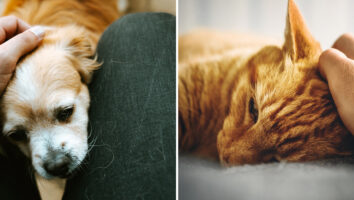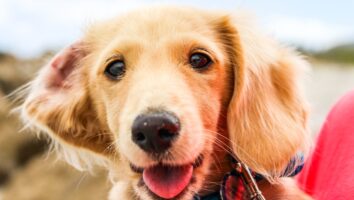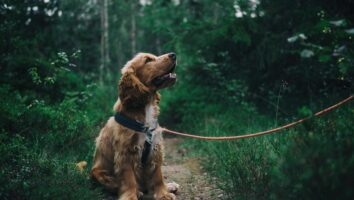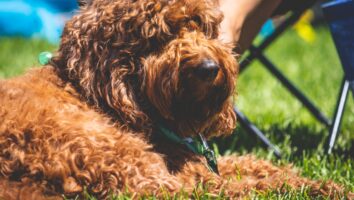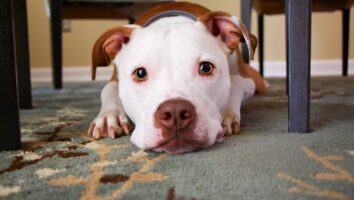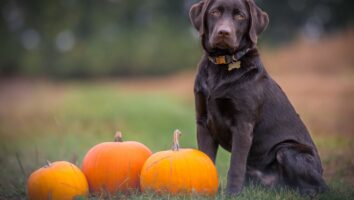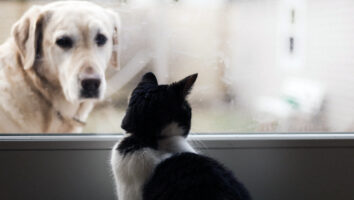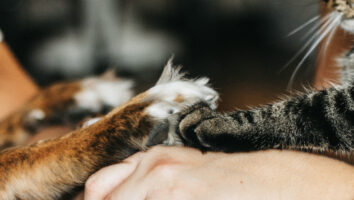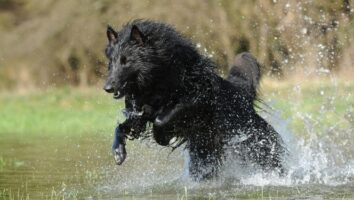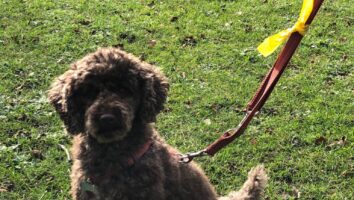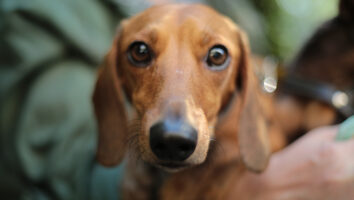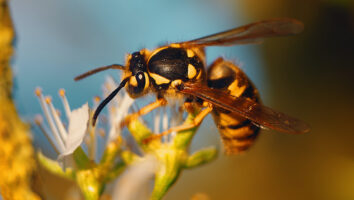Dog
Help! My dog is eating poo
Coprophagia is the medical term for eating poo. Although an unpleasant behaviour, eating faeces is a problem behaviour we see in both puppies and adult dogs. It mostly occurs in puppies and young…
Changes in the colour of your pet’s poo?
Stool colour is an excellent indicator of intestinal health. Many different conditions can have an impact on stool colour and consistency so sometimes these changes are the first indication of a…
When is it time to say goodbye to your pet?
Making the decision to say goodbye to your dog or cat is the one of the most difficult things that you face as a pet owner. Our animals are dear friends, a family member, from whom we do not want to…
Are grapes and raisins poisonous to dogs?
Yes, some dogs are very susceptible to grapes’ or raisins’ toxic effects on their kidneys. Read our article to know more about the issue and how to protect your pet!
Why is antifreeze a danger to your pet?
The antifreeze component added to car and truck engine coolant and other car fluids keeps us safe while driving, but is unfortunately extremely toxic for cats and dogs (and people too, by the way)…
Canine parvovirus infection in dogs
Canine parvovirus (CPV) is a highly infectious viral disease that can be fatal to dogs. Puppies between the ages of six weeks and six months, and unvaccinated dogs, are most at risk. Our vet advises…
How to treat minor wounds on your pet
There’s probably not a dog or cat alive that has never returned home from their outdoor adventures with a scrape, scratch or cut. Either caught up in a tight spot, on a sharp (metallic) object or…
Cushing's disease in dogs
Cushing’s disease is one of the most common hormone disorders affecting dogs. At normal levels, the hormone cortisol helps the body to respond to stress and regulates the immune system. It is…
How to deal with your dog's ear infection (otitis externa)
Is your dog head-shaking or rubbing at the ears? Are said ears red, itchy or dirty or smell bad? Odds are they are having an ear infection. Read on for what you need to know about how to deal with it!
What to do if your dog has fleas
Every dog might get fleas at some point in their life. They can be a temporary nuisance or a real problem. Read the following article to learn what you need to know to keep your dog free of fleas.
How to celebrate a safe Halloween with your pet
During Halloween there is a high risk of dogs and cats ingesting toxic food or dangerous objects. Here we share our best tips and advice on how to celebrate a safe Halloween with your pet!
Constipation in dogs
Dogs normally pass faeces several times a day. If your dog is constipated, then the frequency with which they pass faeces will decrease or stop altogether. Constipation has many causes and,…
How to put together a first aid kit for your dog or cat
You probably have a medicine cabinet at home with medication and stuff for all sorts of mishaps. If you have pets, it’s a good idea to have one for them as well. Check our article on what to put in…
Blue-green algae poisoning in dogs
Blue-green algae typically grows in lakes, ponds and slow moving streams, as well as marine water bodies throughout the UK. When favourable environmental conditions are present (sunny weather, high…
Dog breeds: choosing the right pet for you, your family and your lifestyle
There are so many dog breeds that it can feel like an overwhelming task to choose your perfect pet, whether as a puppy or at a rescue centre. You need to feel confident that you will meet your new…
Indoor activities for you and your dog
With a favourite toy and some treats, there are many fun activities to keep you and your dog entertained indoors. Maybe you don't have the opportunity to go out right now; sometimes it is good to be…
Mastitis in dogs - what you can do to help, and when you should seek advice
Mastitis describes inflammation of the mammary tissue (breast tissue) that enables mothers to produce milk for new offspring. Mastitis is painful inflammation or infection of one or more of the…
Wasp stings in dogs and cats
Dogs and cats are often curious. They like to investigate or hunt insects, and therefore run the risk of being stung. Most dogs and cats can cope well with a wasp or insect sting. In many cases, a…








